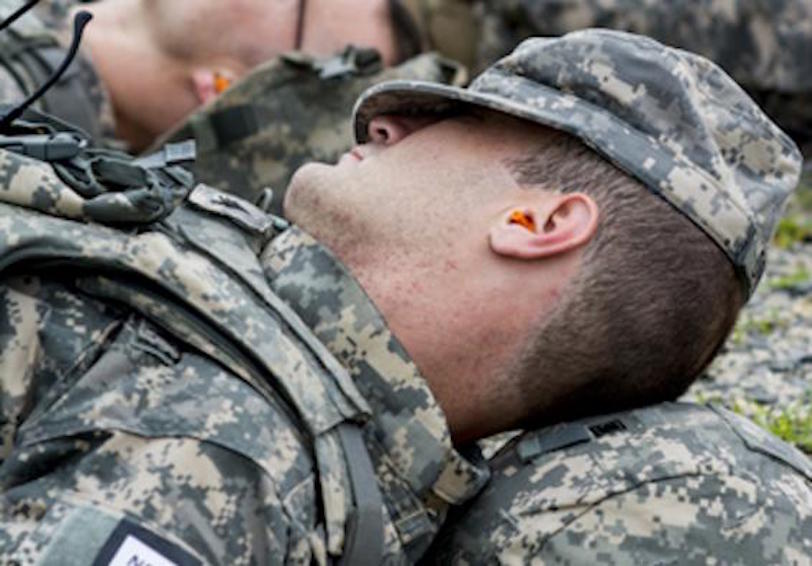This collection of resources for Service Members can help with various aspects of mental fitness, including PTSD, stress, resilience, sleep, and mental health care and screening.
Evidence-based treatment [Video]
This 3-minute video from the Veterans Affairs National Center for PTSD explains what “evidence-based treatment” means and why such methods are likely to provide the best options to get the treatment you need to cope with and recover from PTSD.
Suicide prevention guide for military and veteran families [PDF]
Family members need to know what to look for and how to respond if a Warfighter is suicidal, including how to get expert help and treatment. This 2-page fact sheet from the Defense Centers of Excellence condenses the most important information to help families of Service Members and Veterans provide the needed vigilance and support.
Screening for mental health
This military-specific, anonymous, online mental-health screening will let you know if what you’re experiencing is consistent with mental health issues such as PTSD, depression, anxiety, or alcohol problems.
inTransition
inTransition is a program from DoD and the Defense Centers of Excellence for Psychological Health and Traumatic Brain Injury (DCoE) that can help you receive mental-health services when you are relocating, changing status, transitioning to civilian life, or any time you need free, confidential assistance.
Stress
Stress overview [PDF]
This 2-page handout from the Defense Health Agency describes stress and its effects, with details to help you reframe your thinking about stress, so you don’t over-react. It also describes an 8-step process to reduce stress by solving problems. (Note: This PDF downloads automatically; it can’t be viewed online.)
Combat and Operational Stress Control (COSC)
The Real Warriors website hosts this section on the stress that results from “performing challenging military duties that push your mind and body to the limit.” Resources include links to branch-specific and other materials to help Service Members and families reduce negative stress reactions and get help when they need it.
Tips to prevent and manage stress [PDF]
This SAMHSA booklet designed for disaster response workers describes how to cope with the stress of emergency situations. Disaster responders must cope with crisis situations similar to those faced by Service Members in combat conditions.
Resilience in a time of war: Homecoming
The American Psychological Association offers tips for how to be resilient when coming home from deployment. It can take some time for both Service Members and family members to readjust, so they provide tips to help manage the resulting stress and emotions.
Sleep
How thinking affects sleep [PDF]
This Defense Health Agency handout describes how thinking can affect your sleep. It highlights the impact of negative thoughts, which can cause insomnia, and how to change them to get the sleep you need. (Note: This PDF downloads automatically; it can’t be viewed online.)
Sleep basics [PDF]
This sleep handout from the Defense Health Agency includes basic sleep facts, stages, problems, and thoughts, plus descriptions of harmful and helpful sleep habits. (Note: This PDF downloads automatically; it can’t be viewed online.)
How to develop healthy sleep habits
Getting enough good sleep while deployed is hard to do. Real Warriors has information and tips on how to develop good sleep habits—when you’re deployed, in training, or at home. The web page includes contact information to talk with a trained consultant at the Psychological Health Resource Center.
